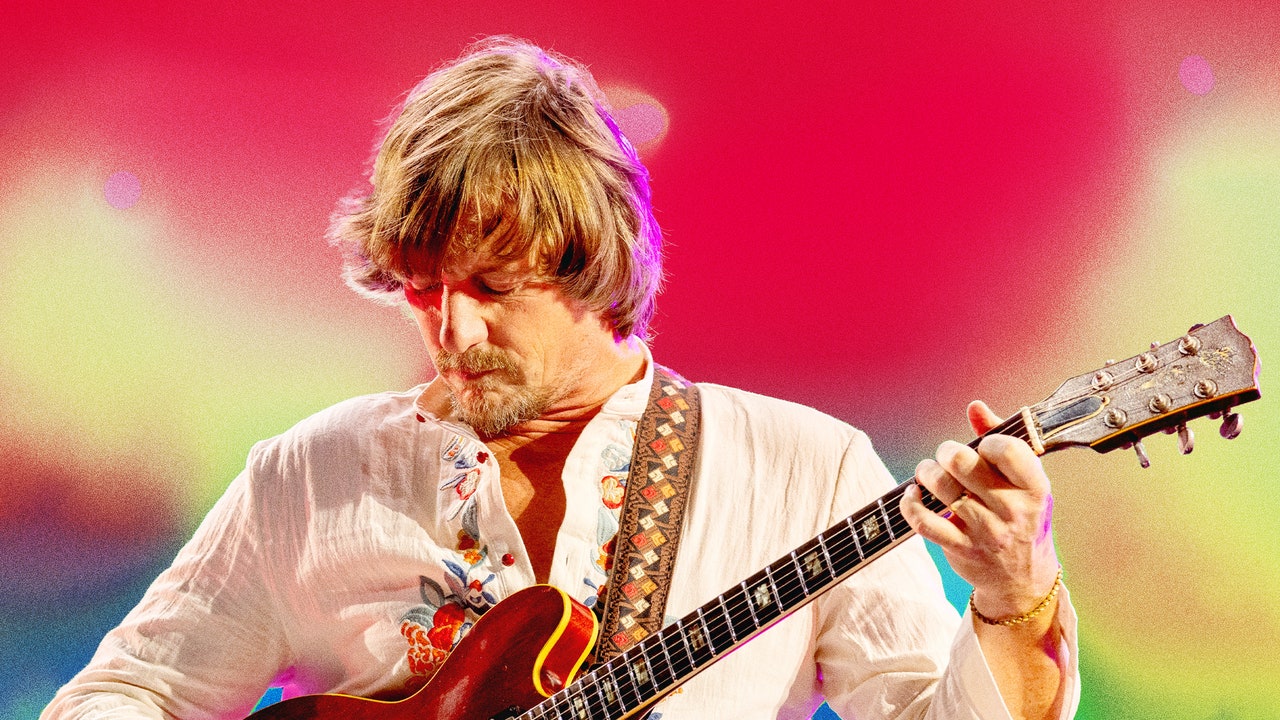The videos reached me at Dad Hours: lightly faded on the couch at 9 p.m. on Saturday night, my wife out with her girlies, all quiet on the baby monitor. All of a sudden my timeline was taken over with footage of the mercurial country music wizard Sturgill Simpson playing a cover of The Allman Brothers Band’s 1970 classic “Midnight Rider,” and—best I could tell from a shaky iPhone upload—doing it with the precision and bonhomie of a jam band that is actively getting away with murder.
With some scrolling, it quickly became apparent that aficionados of Southern rock and related noodling were on high alert: For his Why Not tour, which kicked off in earnest in September, Simpson was apparently on an absolutely molten hot streak, playing hours-long sets: No breaks, no talking—just tight harmonies, rousing saxophone solos, some stupidly audacious covers ( “LA Woman”? “Purple Rain”??) and new arrangements of original tunes featuring brain-melting slide-guitar solos from a genuine virtuoso, an Estonian named Laur Joamets.
If that doesn’t light up your orbitofrontal cortex, I don’t know what to tell you—I immediately blocked off his upcoming New York show in the family Google Calendar. But I was also a little surprised. Simpson is an essential artist of the last decade or so (Pitchfork called him the “premier Nashville outsider”; Barstool called him “the best working musician alive”), but you never know what you’re going to get when he picks up a guitar. The New York Times critic Jon Caramanica described Simpson as “someone whose zigzag path has been idiosyncratic and misunderstood” as he turned away from country music to release a hard-rock record. After that, he a put out a (great) hillbilly concept album, re-recorded most of his discography with “most likely the greatest bluegrass band on the planet” (his words), and had an identity crisis that landed him in Paris (by way of Thailand) and led him to assume the name Johnny Blue Skies.
In fact, earlier this year GQ spent some quality time with Johnny Blue Skies in France ahead of the release of his latest album, July’s excellent Passage du Desir, which marked a return to alt-country form. He sounded happy, like he had figured out some important truths about himself. But he did not sound like a guy who was about to try to pull together the greatest Southern-rock five-piece on the planet in order to play 32 songs in a row in Huntsville, Alabama.
I had my own reasons to proceed cautiously. I had seen Simpson once before, in 2017, at Manhattan’s Radio City Music Hall. It was on an off night: He struggled to fill that unforgiving 6,000-seat venue with a honky-tonk-scale band, and his voice failed him during a long solo acoustic set. There were moments of brilliance, but afterwards I figured I’d be perfectly happy appreciating him as a studio artist. A few years later, after he ruptured his vocal cords while touring with Willie Nelson in 2020—an inciting incident of his globe-trotting identity crisis— Simpson announced a hiatus from performing that would end up lasting four years.

